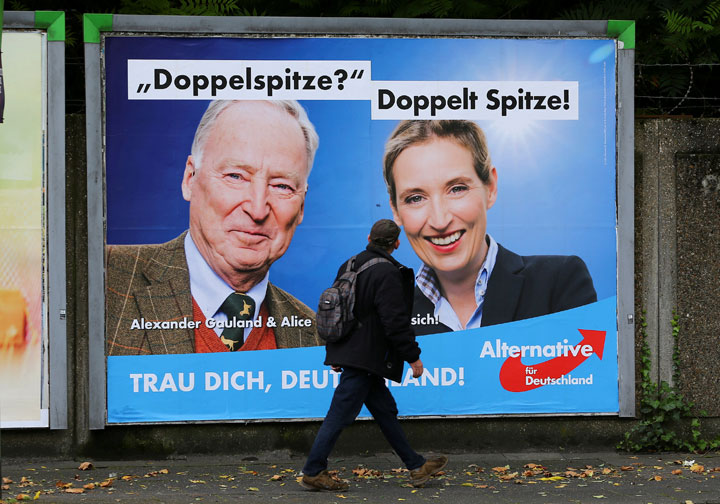Far-right groups are increasingly collaborating internationally to keep out refugees, fight hate speech laws and elect populist politicians, according to a report released Monday.

The Institute for Strategic Dialogue study found that extreme right factions have been putting aside their differences and cooperating to increase their influence, reach and impact.
The study cited the example of the Defend Europe campaign, which raised more than US$200,000 in Europe and the United States to charter a ship to stop migrants from crossing the Mediterranean from Libya.
Support for the European far right has come from Canada as well.
“Both Canada and the U.S. have been really helping the European side quite a lot,” said Julia Ebner, the study’s co-author.
Right-wing extremist groups have formed international alliances before but they’ve traditionally been too fragmented and ideologically at odds to work together or form any kind of united front.
“It was kind of a boon for everyone else because they spent half their time arguing and fighting amongst one another,” said co-author Jacob Davey. “But now they’re being opportunistic and sort of putting aside this in order to create a more homogeneous group.”

Get daily National news
The “unite the right” rally in Charlottesville, Va. last August, for example, “brought together many loosely affiliated far right communities of different ideological leanings,” the study said.
Recent elections in France, the Netherlands and Germany also “demonstrated increased trans-Atlantic cooperation and information exchange between extreme right-wing activists on the web,” it said.
Supporters of Dutch Freedom Party leader Geert Wilders and France’s National Front candidate Marine Le Pen “borrowed tactics employed by the alt-right in the U.S. elections,” using trolling, fake accounts and social media bots to spread disinformation, the study said.
U.S. alt-right and European extreme right forums also spent months preparing strategies to promote the far-right Alternative for Germany party in last month’s election, it added. The party finished third.
- Canadian immigration officers investigating hundreds identified by extortion task force
- Carney unveils ‘Buy Canadian’ defence plan, says security can’t be a ‘hostage’
- Inflation cooled to 2.3% in January but food prices up again: StatCan
- Rhode Island shooting brought to ‘swift end’ by ‘good Samaritan’: police
Researchers at the British think tank spent three months undercover and analysed over 5,000 posts on more than 50 platforms trying to understand the “new dynamics” of the extreme right.
Mapping the far-right’s activities during the Defend Europe campaign, Charlottesville and German election showed that “extreme right-wing groups are increasingly building bridges across geographic and ideological divisions to leverage their online and offline activities and penetrate new audiences,” it said.
Davey said the extreme right’s goal was to make its ideas mainstream and radicalize followers.
“You can see the impact of that actually happening in Canada,” he said, citing the January killings of six worshippers at a Quebec City mosque by an alleged follower of the European far right. “He was connecting to these alt-right networks online.”
Three people were arrested Thursday over a shooting incident in Gainesville, Fla, following a speech by white national Richard Spencer. ABC News reported that a police report said one of the suspects had shouted “Heil Hitler” during an argument between two groups before a single shot was fired. The bullet hit a nearby building.
Stewart.Bell@GlobalNews.ca



















Comments
Want to discuss? Please read our Commenting Policy first.